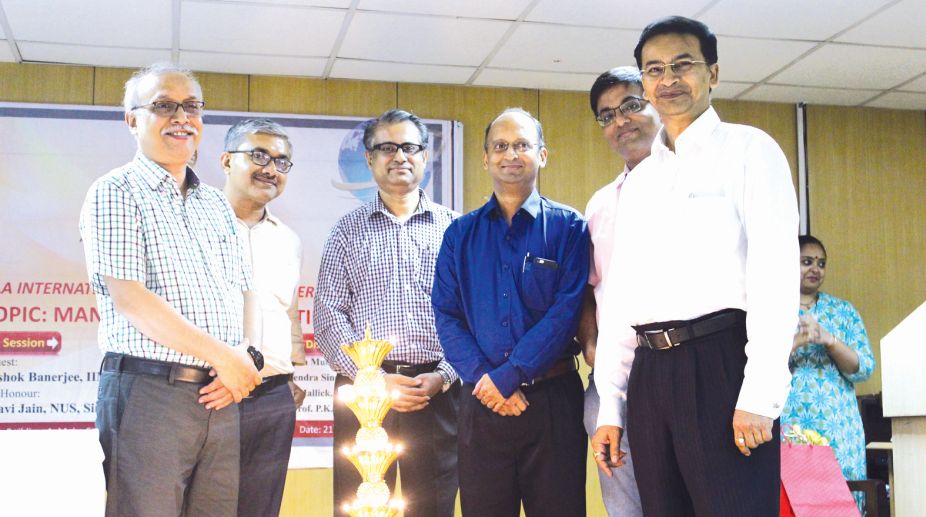Problems in the Indian education system
Knowing that career planning and mentorship are typically overlooked in the traditional education system, AGC has made provisions to aid students at each step of their learning process.
A good research must be original and contextual so that it has the capability to solve real life problems.

Left to right — Ashok Banerjee, Vivekananda Mukherjee, Soumitra Mallick, Ravi Jain,Ramendra Singh, JN Mukhopadhyaya.
A relevant and contextual research bears the potentiality to change the education system for better. Emphasising on its importance, a panel discussion on “How to make research effective” was held recently at J D Birla Institute, Kolkata.
Panellists for the session were Vivekananda Mukherjee, Jadavpur University; Ramendra Singh, IIMC; Soumitra Mallick, IISWBM, and PK Das, IIFT. According to Mukherjee, researchers should be expressed in a way that will be easy to understand.
Advertisement
The researcher must establish why his/her message is important and communicate the logic behind the work. Then only will it become effective. “If one has a proper theoretical structure incomprehensible language, then even something as abstract as human emotions becomes easier to communicate,” said Mukherjee.
Advertisement
He also emphasised upon the concept of empirical research. Any good research must be based upon an idea inspired from real facts, so that it can be applied on real life problems. However, the task of the researcher does not end just with the formulation of theory. It should be followed by successful implementation of the data collected and established.
Singh elaborated on knowledge generation and dissemination as the essences of proper research. He said that India has a long way to go in both the process. When one chooses a subject which is yet to be thoroughly explored, then only one can be called a true researcher.
According to him, research must be contextual with an original topic. “Look at your immediate surroundings. Think about the problems and challenges you hear and face in everyday life. From there comes the scope for research,” he said.
It should be done as a service to the society one lives in; a way of giving back to it by generating new knowledge to the poorer and lesser aware sections of the society. One should be practically involved in the process of field investigation, supervision and data collection and be familiar to the context in which the data is being collected.
Singh calls publishing of research a game. “The entire editorial office is sitting in the US. The publishers are biased. There is a pressure to publish American journals, as they are not interested in the research of your local problems,” he said.
According to him, to make research effective, journals have to be strengthened. Despite all hurdles, the best way of doing it is to try and get into the system. Speaking about knowledge dissemination, he said that the model sustains on quid pro quo. The Indian academic community must engage with all the sections of the society.
Mallick discussed the area of research involving R&D expenditure which is the total money spent for research. He also delved into the unexplored area of research activity or the labour part of it — the time spent and knowledge required for it. He related the idea of research from the perspective of input and output in a production system.
“We need to summarise what are the inputs and the outputs in this production. A same amount of data collected may result in different amounts of outputs. It is a challenging problem to quantify the output and decide which the best is,” he said.
Advertisement